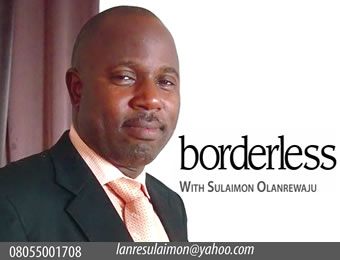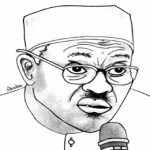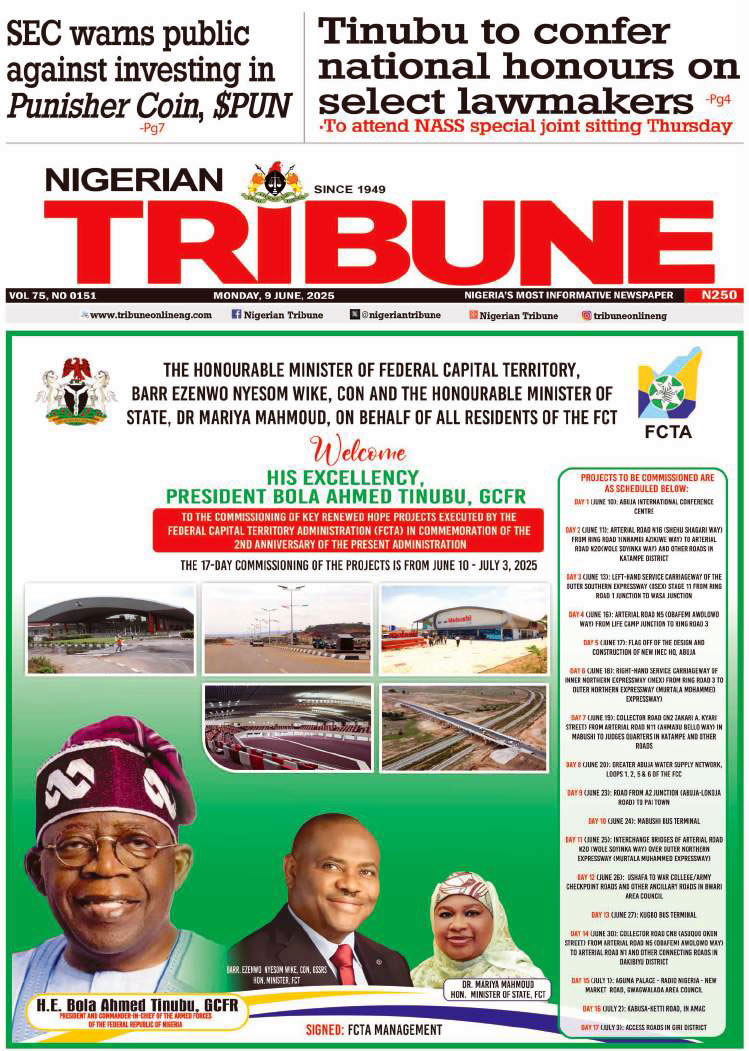But for the presidential intervention, June 12 would probably have been blotted out of the consciousness of the government and people of Nigeria. The June 12 struggle started as a national agitation but later got restricted to the South-West. In the early days, the South-West states would not only declare the day work-free but would also organise programmes in honour of the symbol of the struggle. But in the last few years, this had ceased to be the case except in Ogun State.
But that was a disservice to the memory of Abiola. For the avoidance of doubt, June 12 was a pan-Nigerian mandate. The phenomenon that is known as June 12 is neither about Abiola nor the Yoruba race; it is about the collective desire of Nigerians from all walks of life and political divides to move against military dictatorship, religious bigotry and tribal jingoism. It was a day Nigerians rose to wrest Nigeria from those who held it by the jugular, shoving behind everything that stood against their unity. There has not been another day like that in Nigeria.
Without any doubt, the June 12, 1993 presidential election is the precursor of the current republic, the longest in the nation’s chequered history. And it would not have been if not for the resolve of Abiola to stake all he had to ensure that the military did not rubbish the expressed desire of Nigerians for democratic governance. In the course of seeking the validation of his mandate, he lost almost everything he had.
After his self-declaration as the President-elect at Epetedo, he lost his freedom as he was subsequently arrested by the state, clamped into detention and tried for treason. To debilitate his ability to finance the struggle, his vast business empire was clipped. It was said that his oil block licences were revoked. This resulted in a reduction in the flow of funds to the late billionaire. After this came the grounding of his Concord Airline, Summit Oil International and African Shipping Line in that order. The National Concord, the newspaper he founded, came under severe attacks as the government of the day repeatedly proscribed it. Other businesses of the late politician were not spared, they were all hit by General Sani Abacha’s hammer and many of them did not survive the onslaught. Today, most of the businesses have become history. It got so bad that one of the administrators of his estate, Edwards Angell Palmers & Dodge, wrote a letter to the family, dated May 30, 2008, in an effort to clarify the family’s misunderstanding about the late business mogul’s property in its custody. According to the company, the struggle to validate June 12 bankrupted Abiola. The company added that there were no substantial funds belonging to Abiola withheld by international banks as part of the money had been used by Kola, his eldest son, to clear his father’s debts.
Edwards Angell Palmers & Dodge reasoned, “If some huge sum existed offshore, the question that has to be asked is, why was it not used during Chief’s lifetime to discharge this indebtedness? We believe, as was set out in the 3rd March report, that Chief MKO Abiola, for all his fabled wealth prior to his election campaign, was effectively bankrupted by his efforts.”
Apart from the loss of his famed fortune, Abiola also lost his vocal wife, Kudirat, who had teamed up with NADECO members to continually demand the validation of the June 12, 1993 election and recognition of Abiola as the winner. She was shot at a very close range in Ikeja by agents of the state. Abiola himself died in detention on July 7, 1998 almost a month after the death of Abacha and the assumption of office by General Abubakar Abdulsalami.
For all the sacrifices made by Abiola, the least the nation owes him is national recognition as a hero of our democracy. While it is not clear why Chief Olusegun Obasanjo, who directly benefitted from Abiola’s sacrifice, and Alhaji Umaru Yar’Adua, his successor, never deemed it fit to bestow national recognition on either Chief Abiola or the June 12 issue, former President Goodluck Jonathan’s attempt to rename the University of Lagos after Abiola was rebuffed and scuttled by many acclaimed Abiolaists. It is however gladdening that President Muhammadu Buhari has seized the opportunity to right this wrong by recognising the date for what it represents in the nation’s history.
But beyond the declaration of June 12 as the nation’s Democracy Day, the Federal Government should officially declare Abiola winner of the election so that the issue of the ‘assumed winner of June 12 election’ would be laid to rest permanently. The government should also name significant national monuments after him. However, I hesitate to join those clamouring for him to be recognised as a former president because in deed he never was, though he should have been. Naming him a former president will be akin to twisting facts and manipulating history.
All the same, President Muhammadu Buhari deserves accolades for doing what those ahead of him in office ought to have done but failed to do. It is my fervent hope that this initiative would be extended to other areas of our national life that President Buhari’s predecessors in office ignored to treat so that his name will be imprinted indelibly in the sands of time as a game changer.ax







